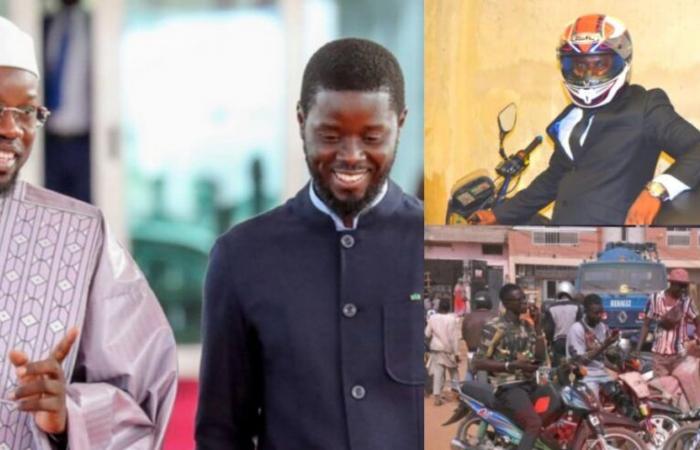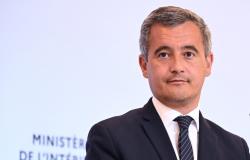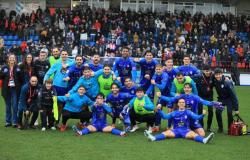In Senegal, the Jakartamen, these drivers of scooters and motorcycle taxis (motorized two-wheelers from 50 to 125 cm3) commonly called Tiak-Tiak, who have become an essential cog in urban and rural mobility, have been going through for more than a decade a precarious situation. Faced with their lack of administrative regularization and the economic challenges they face, the State of SENEGAL, at its head, His Excellency, President Bassirou Diomaye FAYE, and its Prime Minister, Ousmane SONKO, invites the Jakartamen, hand in hand hand, to find, together, a viable and human solution, in order to legally regulate this road activity while supporting these young people who depend on it for their survival and their economic growth.
A key role in the informal economy
Jakartamen, otherwise known as Tiak-Tiak drivers, because of their speed in ensuring their customers’ shopping, play a vital role in the daily travel of millions of Senegalese people. Their presence compensates for the lack of public transport, particularly in isolated areas. However, despite their undeniable contribution, these young people are often marginalized, due to lack of legal status and official recognition.
Currently, regularization for Jakartamen seems inaccessible for many of them. Between registering scooters, subscribing to insurance, and obtaining a driving license for certain categories of scooter (e.g. 125 cm3), the costs accumulate and become unbearable for this category, often from disadvantaged.
A solidarity fund for accessible regularization
If the State of SENEGAL cannot offer free regularization to all Jarkatamen, it could consider a fair, inclusive and social alternative: the creation of a transparent and supportive financing fund. This fund would allow Jakarta residents to regularize their situation thanks to zero or very low interest rate loans, repayable over a period of one to two years.
This mechanism, which could be fueled by state subsidies, partnerships with NGOs and financial institutions, would offer several advantages to these young people and to the country’s economy:
Legal recognition: Jakartamen would finally be aligned with the requirements of the Highway Code and insurance, thus reducing the risk of accidents and penalties.
Economic stability: Once regularized, these young people could carry out their activity legally, without fear of confiscation of their motorized two-wheelers or arbitrary fines.
A model of transparency: The transparent management of this fund, with regular public reporting, would strengthen the confidence of beneficiaries and partners.
Young, patriotic and ambitious leadership
Under the Presidency of Mr. Bassirou Diomaye FAYE and with Prime Minister Ousmane SONKO, SENEGAL is led by two youth figures, both aged under 50. Their commitment to this segment of the population on a daily basis is very clear, it is to make Senegalese youth one of the most fulfilled on the African continent.
With this in mind, they invited these Jakartamen to play the game, to declare themselves and comply. For those who really will not have the means to finance their regularization, we invite the State, with its great benevolence and great humanity, to grant them aid adapted to their situation. This approach would aim to give a fair chance to all Jakartamen, while holding industry players accountable.
Better access to compensation and care
The benefits of regularization go far beyond simple compliance. In the event of an accident:
Easy compensation: With valid insurance, the driver can be reimbursed quickly for the damage suffered.
Improved medical care: In the event of bodily injury or serious after-effects, hospitalization, survival and convalescence costs are adequately covered. This represents a vital safety net for drivers who often face unstable incomes.
These benefits illustrate the importance for Jakarta men to quickly leave the informal sector through mass regularization, in order to evolve in a legal and secure framework.
Resistance to understand and elucidate
However, if a minority of Jakartamen seems reluctant to the idea of regularization, despite the fact that they have the financial means.
The State of SENEGAL must investigate the reasons for their reluctance or refusal which must merit particular attention from its authorities and services. Is it a question of distrust of institutions? A persistent financial incapacity despite offers of aid? Or even less avowed motivations, linked to the news stories of recent years, attacks sometimes filmed, snatchings, violent thefts from the door, orchestrated by bandits using means of transport such as two-wheelers? Is it also linked to stolen scooters and the widespread trafficking of these motorized vehicles that they will struggle to declare?
It is essential for the State of SENEGAL to explore these reasons in order to provide appropriate responses. The fight against insecurity, attacks, door thefts and snatchings also involves the regularization and control of this sector which is developing more and more informally.
The State must therefore, while reaching out to those who act in good faith, show firmness towards those who exploit this activity illegally or criminally.
A call for collective responsibility
President Bassirou Diomaye FAYE and Prime Minister Ousmane Sonko want to believe in committed youth, respectful of the law and keen to build a better future. They call on Jakartamen to seize this opportunity to become legal, while reaffirming their willingness to support them in this process.
By organizing, supervising and formalizing this profession, the government hopes to transform an informal sector into a real economic and social force. The formalization of Jakartamen is therefore a key step in offering these youth dignity and future prospects, while strengthening the security and well-being of all Senegalese.
A helping hand appeal to Jakartamen
This initiative by our Authorities would not only be an administrative gesture, but a real lever for social transformation. Giving Jakarta residents a chance to comply with the law means giving them the means to work with dignity, provide for themselves and hope for a better future.
Ultimately, the regularization of Jakartamen should not be seen as a constraint on the State, nor a threat to Jakartamen in their daily activities, but rather as a means of cleaning up this environment made precarious by the lack of visibility. administrative. It is for us, patriotic youth, for our Government and for the Bassirou and Ousmane pair, a future investment, in the future of courageous Senegalese youth, resilient and determined to find their place, humanly and professionally speaking, in a a more just and equitable society, which has already embarked on its economic emergence, social justice and societal development.
Mandiaye DIOUF
Doctoral student in Public Health – UNS
Quality, Hygiene & Biological Risks Engineer
Health, Hospital and Medical-Social Director
Deputy Coordinator of Pastef Nice Cannes
Member of the General Assembly of Pastef France






